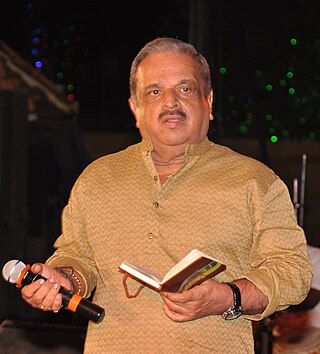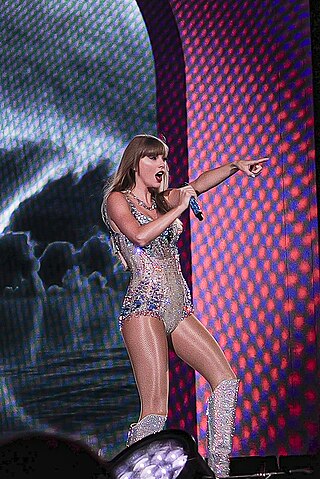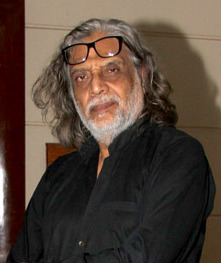This article needs additional citations for verification .(June 2020) |
A list of films produced in the Tamil film industry in India in 1944:
| Title | Director | Production | Music | Cast | Release date (D-M-Y) |
|---|---|---|---|---|---|
| Baktha Hanuman | C. V. Raman | C. V. Raman | T. A. Kalyanam | M. D. Parthasarathi, V. A. Chellappa, T. R. Mahalingam, Serukalathur Sama, P. S. Govindan, K. L. V. Vasantha, M. R. Santhanalakshmi, Gnanambal, C. T. Rajakantham | 25 December 1944 |
| Bharthruhari | K. Subramaniam | Kalaivani Films & Madras United Artists Corporation | V. K. Parthasarathy Iyengar | Serukulathur Sama, B. Jayamma, G. Pattu Iyer, N. S. Krishnan, V. N. Janaki, T. A. Madhuram, Kali N. Rathnam, C. T. Rajakantham, Nagalakshmi, Kalyani, Aazhvaar Kuppusami, Pulimoottai Ramasami, E. Krishnamurthi Kunchithapaadham Pillai, M. Thiruvengadam | 13-04-1944 |
| Dasi Aparanji | B. N. Rao | S. S. Vasan, Gemini Studios | M. D. Parathasarathy & S. Rajeswara Rao | Kothamangalam Seenu, Pushpavalli, M. K. Radha, Kothamangalam Subbu, L. Narayana Rao, M. S. Sundhari Bai | 16-10-1944 |
| Harichandra | K. B. Nagabhushanam | K. B. Nagabhushanam & P. Kannamba, Sri Rajarajeswari Films | S. V. Venkatraman | P. U. Chinnappa, P. Kannamba, M. N. Nambiar, R. Balasubramaniam, M. R. Swaminathan, Yogam Mangalam, N. S. Krishnan, T. A. Mathuram | 27-12-1943/14-01-1944 |
| Haridas | Sundar Rao Nadkarni | Royal Talkies | G. Ramanathan | M. K. Thyagaraja Bhagavathar, T. R. Rajakumari, N. C. Vasanthakokilam, N. S. Krishnan, T. A. Madhuram, T. E. Krishnamachari, Pulimoottai Ramaswami, Harini, Radhabai, Pandari Bai | 16-10-1944 |
| Harishchandra Dubbed from Kannada. First dubbed film in Tamil [1] | R. Nagendra Rao | Pragathi Studios | R. Sudharsanam | Subbaiah Naidu, R. Nagendra Rao, Lakshmibai, J. V. Krishnamurthy Rao, M. G. Marirao, B. S. Raja Iyengar, Kamalabai, Narasimhan (credited as Master Narasimhan) | 06-01-1944 |
| Jagathalapratapan | K. S. Narayana Iyengar & S. M. Sriramulu Naidu | K. S. Narayana Iyengar & S. M. Sriramulu Naidu, Pakshiraja Films | G. Ramanathan | P. U. Chinnappa, M. S. Sarojini, N. S. Krishnan, T. A. Madhuram, M. R. Santhanalakshmi, P. B. Rangachari, U. R. Jeevarathinam, S. Varalakshmi, T. A. Jayalakshmi, T. S. Balaiah, D. Balasubramaniam, Kulathu Mani, M. S. Murugesan, P. Saradambal, M. V. Mani, Kumari Kamala, Yogambal (Yogam)- Mangalam | 13-04-1944 |
| Mahamaya | T. R. Raghunath | M. Somasundaram & S. K. Mohideen, Jupiter Pictures | S. V. Venkatraman & Kunnakudi Venkatarama Iyer | P. U. Chinnappa, P. Kannamba, M. G. Chakrapani, N. S. Krishnan, T. A. Madhuram, M. S. Saroja, R. Balasubramaniam, D. Balasubramaniam, S. V. Sahasranamam, M. K. Meenalochani, Baby T. D. Kusalakumari, T. R. Rajani, T. R. B. Rao and dance by B. S. Saroja | 16-10-1944 |
| Poompaavai | Krishnan–Panju | Leo Films | A. Rama Rao | K. R. Ramasamy, U. R. Jeevarathinam, N. S. Krishnan, T. A. Madhuram, C. S. Jayaraman | 18-08-1944 |
| Prabhavathi | T. R. Raghunath | S. M. Letchumanan Chettiar, Krishna Pictures | C. Honnappa Bhagavathar, T. R. Rajakumari, N. S. Krishnan, T. A. Madhuram, S. P. L. Dhanalakshmi, M. S. Saroja, Nagercoil K. Mahadevan, D. Balasubramaniam, R. Balasubramaniam, T. R. Ramachandran, S. V. Sahasranamam, E. R. Sahadevan, Kulathu Mani, T. V. Namasivayam, Pulimoottai Ramasami, Velayutham, M. Lakshmanan, P. A. Periyanayaki, P. A. Rajamani, A. R. Sakunthala, K. R. Chellam, Lux Beauty R. Padma, T. S. Krishnaveni, G. Rathinam | 06-08-1944 | |
| Raja Rajeswari | M. L. Tandon & T. R. Sundaram | T. R. Sundaram, Modern Theatres | T. A. Kalyanam (assisted by K. V. Mahadevan as per film credits) | C. Honnappa Bhagavathar, K. L. V. Vasantha, U. R. Jeevarathinam, N. S. Krishnan, T. A. Madhuram, Serukulathur Sama, Kali N. Rathnam, S. V. Sahasranamam, M. R. Santhanalakshmi | 23-12-1944 |












